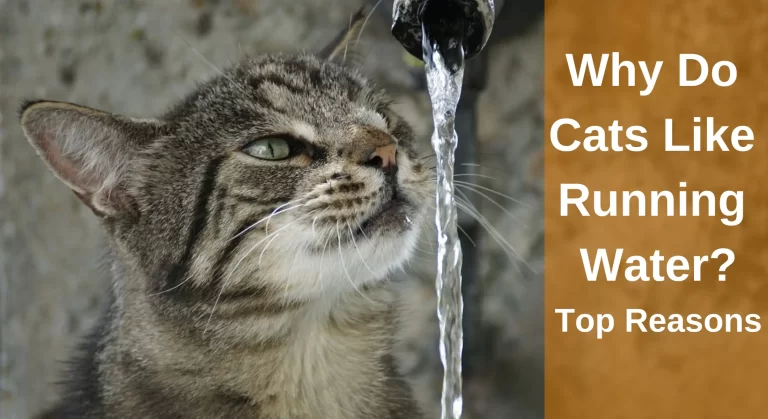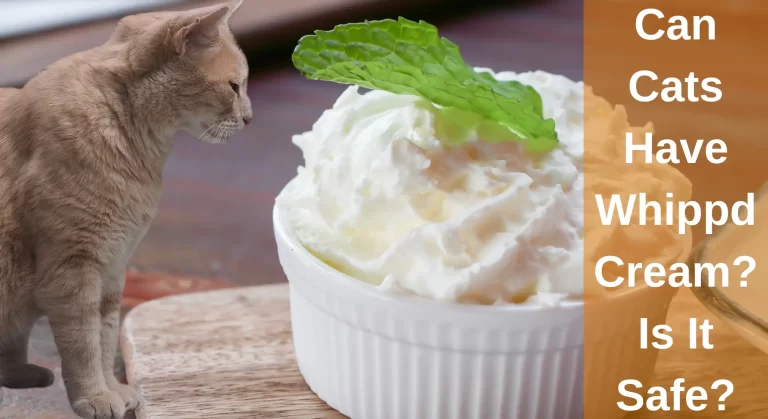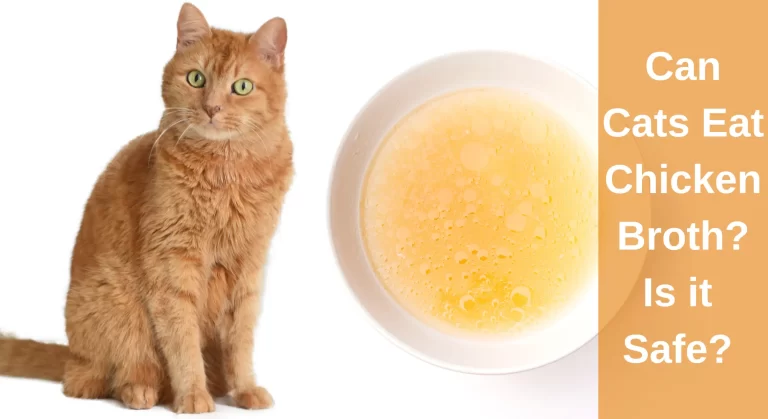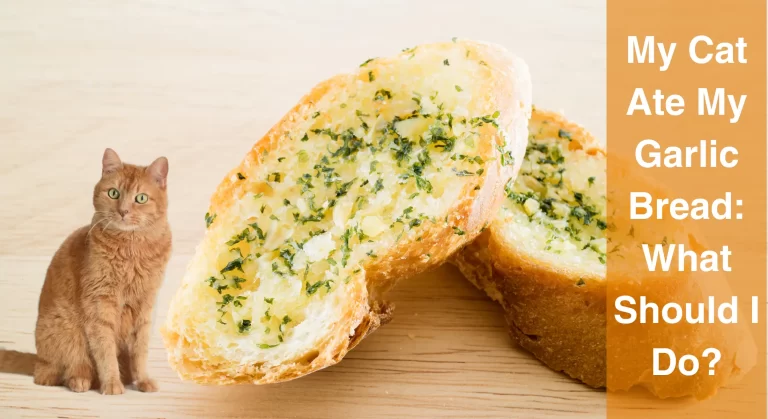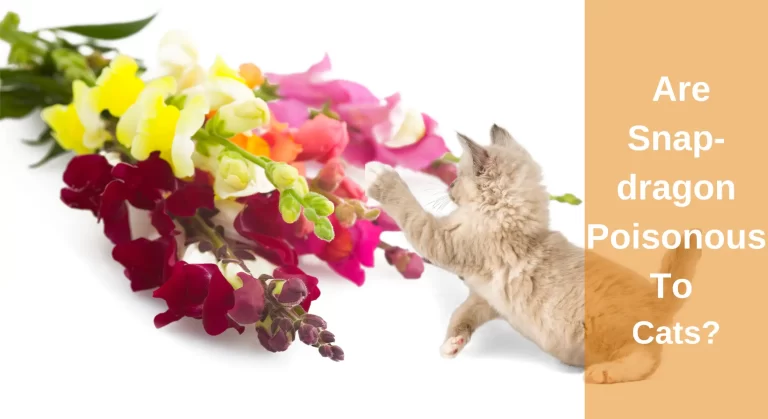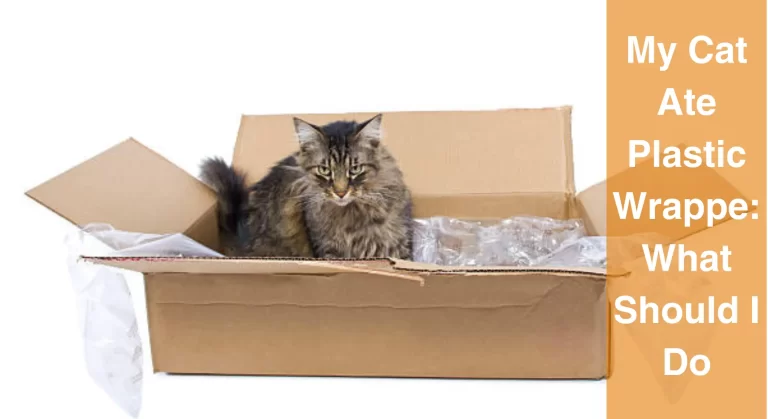Cat Licks My Food Can I Eat It? [Explained]
It has happened to every cat owner at least once. You finish cooking dinner and go out to dine. When you turn back, your cat is eating the leftovers you left on the counter. You don’t want to waste away all that food even if you don’t know if you will become sick. What follows is a self-question: Here the question arises; cat licks my food can I eat it? If you want to get its answer, you are at the right place.
It’s best to avoid eating food licked by a cat. While cat saliva isn’t toxic, it may contain bacteria and allergens that can pose health risks, especially if you have allergies or a weakened immune system. To ensure your health and hygiene, it’s advisable to refrain from consuming food that your cat has licked.
In this article, we will explore the reasons in detail behind this behavior and address the safety concerns associated with sharing food with your furry companion.
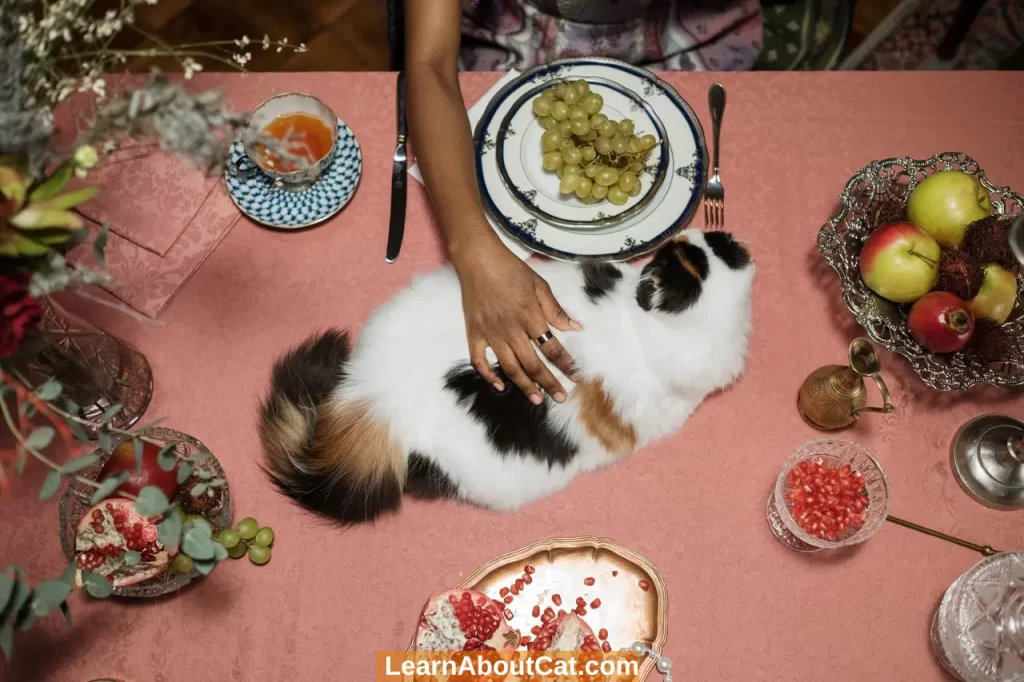
Why Do Cats Lick Your Food?
Curiosity and Exploration: Cats are inherently curious creatures. They often explore their surroundings through their senses, including taste. When they lick your food, it may be a form of investigation or curiosity about this new and intriguing sensation.
The Scent of the Food: Cats have an extraordinary sense of smell. They can detect the slightest hint of aroma from your meal, even from a distance. When they get close and notice the enticing scent, they might become curious about the source and start licking.
Mimicking Social Behavior: Cats sometimes mimic the social behaviors they observe in their owners. If they see you eating, they might mimic the action by licking your food, thinking it’s what they should do.
Facts: Cat Licks My Food Can I Eat It? Is It Safe
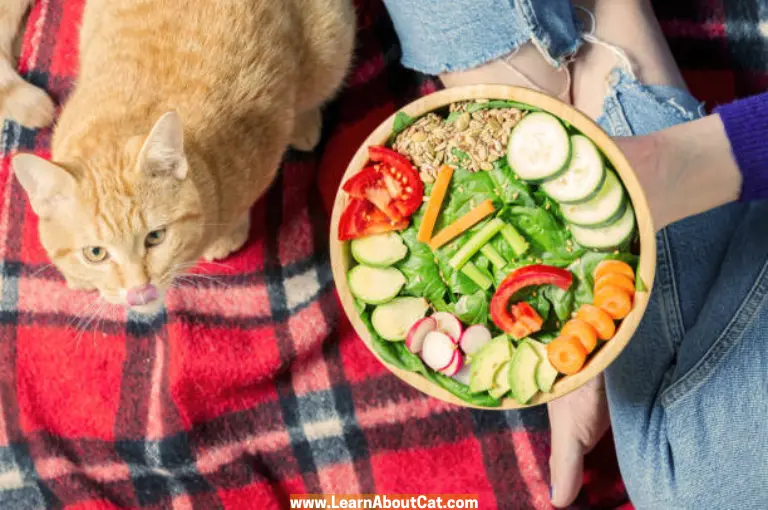
1. Bacteria and Hygiene Concerns
Cat saliva contains bacteria, as do the mouths of all animals, including humans. While a cat’s mouth is generally cleaner than a dog’s, it’s not entirely free of microorganisms. When a cat licks your food, it can transfer these bacteria to your meal. Consuming such food can introduce potentially harmful bacteria into your system, which may lead to digestive discomfort or illness, particularly in individuals with weaker immune systems.
2. Allergies and Health Risks
Cat saliva can also contain allergens. If you or anyone sharing the food has allergies or sensitivities to cat dander or saliva, ingesting food licked by a cat can trigger allergic reactions. This can include symptoms like skin rashes, itching, sneezing, or more severe responses in some cases.
Cats’ saliva contains enzymes and proteins that help break down and digest their own food but may not be suitable for human consumption.
3. Ailing Kitten
If your cat has been unwell recently or is displaying signs of illness, it’s advisable to refrain from eating any food that they’ve licked. Illness in cats can sometimes result in the presence of potentially harmful bacteria in their saliva, which can be transmitted to the food they’ve licked.
4. Ablutophobia
Cats often remove the dirt from their fur using their tongues. To show them even more attention, think about giving them a full bath. Try cleaning her up with a wet towel. Cats commonly use their tongues to clean themselves, however, they usually struggle to reach some places, such as the head, back, and rear.
Mother cats usually help their young offspring clean up these messes. A beautiful, clean towel should be soaked in warm water. Check to see that the towel isn’t too scratchy if you don’t want to irritate your cat.
5. It’s Time to Feel Alarmed
In the worst situation, though, ingesting cat saliva might lead to infections, gastrointestinal discomfort, or a skin patch. Cats can spread roundworms and hookworm to one another by eating or licking one another’s feces or anuses. And we have all seen it happen.
So, as you may have probably guessed, when cats lick you, they pass these parasites along. Rashes, itching, nausea, stomach pain, diarrhea, fever, and exhaustion are some of the symptoms that these parasite infections can cause.
6. Cryptosporidiosis
The cause of cryptosporidiosis is a parasitic worm infection known as Cryptosporidium parvum. Cysts are formed by parasitic organisms in the feces of infected people and animals. The cysts, which are frequently seen in lakes and streams, may endure moist conditions for two to six months. The fecal-oral route is how the parasite spreads.
By consuming contaminated food, drinking tainted water, or getting into close contact with ill cats, people, and animals can catch an infection. The illness usually goes away on its own in healthy individuals, but it can last longer and be more severe in those with weakened immune systems.
7. A little Care Everyday Prevents Illness
The cat’s mouth and teeth need to be regularly cleaned by the owner. The accumulation of tartar, infections, and other problems brought on by poor dental care can be unpleasant to touch. At the age of three, 70% of cats already exhibit signs of oral and dental illness.
In your kitten’s mouth, there are more than 300 different kinds of bacteria that live there naturally. As the bacteria consume food, saliva, and minute food particles join forces with them to produce plaque. The first step in maintaining your kitten’s dental hygiene is regular brushing. Remove the plaque from your kitten’s teeth to prevent the development of tartar.
8. The Notorious Cat Scratch Illness
The most common cause of felinosis, often known as cat-scratch illness, is a cat bite or scratch. The Bartonella henselae bacteria, which the cat is known to spread by its saliva, is considered to cause cat scratch illness. Young cats are more at risk than senior cats in this situation. After feeding your kitten, be careful not to exhibit any of the typical signs of this illness.
9. The 5-Second Rule
Contrary to the popular “5-second rule” that some apply to dropped food, it doesn’t apply when it comes to cat-licked food. Once your cat’s tongue has made contact with your meal, it’s best to consider it off-limits. The risk of bacterial transfer is significant, and no amount of time on the floor makes it safe.
You Might Also Like to Read: Can Cats Eat Human Food?
Can Cats Transmit Diseases to Humans?
Zoonotic refers to any ailment that may transfer from animals to humans. The most well-known and feared zoonotic disease is rabies.
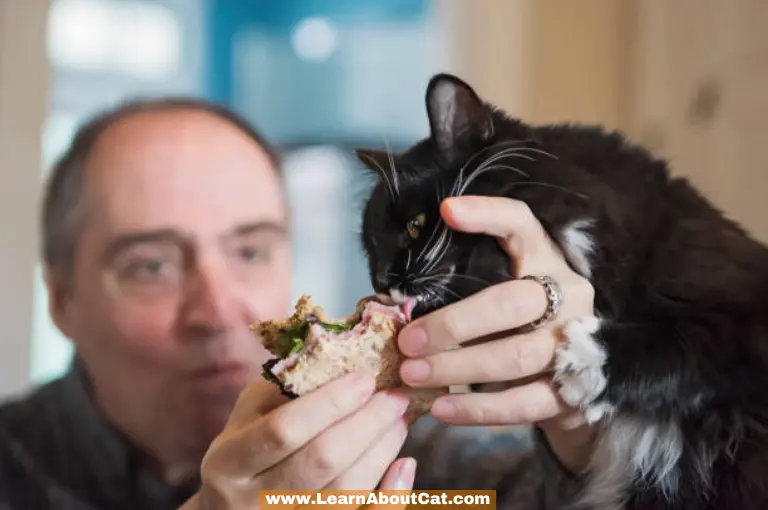
A few examples are pathogenic E. coli infections, rabies, capnocytophaga, pasteurellosis, cat scratch disease, ringworm, sporotrichosis, tularemia, plague, Q fever, campylobacteriosis, salmonellosis, cryptosporidiosis, giardiasis, toxoplasmosis, and MRSA.
Interesting Read: Can Humans Eat Cat Food? Is It Safe?
How Can You Get Your Cat to Quit Eating Your Food?
You can stop your cat from licking your food by doing a few things.
- Unattended food should always be covered.
- Never put food out for your cat unsupervised.
- Your cat should be taught to distinguish between cat food and human food.
- Place food in a place that your cat can’t easily get, like the refrigerator.
- Keep your dinnertime and your cat’s feeding periods apart.
Frequently Asked Questions
Can a cat kill you with a lick?
Viruses like Pasteurella and Bartonella, which may cripple individuals with weakened immune systems and cause significant health issues including blindness and heart attacks, can be carried by cats.
Is cat saliva harmful?
Cat saliva can indeed be harmful to humans, as it may contain bacteria and parasites that can lead to diseases such as cat scratch disease, pasteurellosis, and toxoplasmosis. The risk of transmission is higher when the cat is unwell or unvaccinated.
Can I drink milk licked by a stray cat after boiling it?
Even if you boil milk that a stray cat has licked, it’s best to avoid consuming it. Boiling may kill some bacteria, but it won’t necessarily eliminate all potential contaminants. It’s safer to discard the milk and use a fresh, uncontaminated supply.
Should I let my cat lick my plate?
It’s generally not recommended to allow your cat to lick your plate. While it might seem endearing, it can introduce bacteria from your cat’s mouth to your dishes. It’s better to keep your cat away from your dining area to maintain hygiene.
What happens if you accidentally eat cat food?
If you accidentally eat cat food, there’s no immediate cause for alarm. Most commercial cat foods are formulated to be safe for consumption by humans, although they may not be particularly palatable. However, if you experience any adverse effects or have concerns about the ingredients, consult a healthcare professional for guidance.
Is it safe to give my cat a small portion of my meal?
While some human foods are safe for cats in moderation, it’s essential to research which foods are safe and consult your vet.
Conclusion
In conclusion, while cats are beloved companions, their saliva can contain bacteria and parasites that may pose health risks to humans. It’s vital to be aware of these potential risks and take precautions.
Practicing good hygiene, ensuring your cat’s health through vaccinations, and being cautious when your cat interacts with your food or face are essential steps to mitigate these health concerns. By being mindful of these factors, you can enjoy a safe and harmonious relationship with your feline friend.
Who is Isabella?
My name is Isabella, and I am a dedicated and knowledgeable cat enthusiast. With years of experience caring for cats and a deep love for felines, I made a mission to help other cat lovers navigate the challenges of cat ownership.

